
[xyz-ihs snippet="NavigationLinksBlock-Common"]
Liebestraum
by Franz Liszt
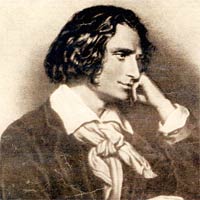
The "Liebesträume (German for Dreams of Love)" is a set of three solo piano works (S.541/R.211) by Franz Liszt, published in 1850. Originally the three Liebesträume were conceived as lieder after poems by Ludwig Uhland and Ferdinand Freiligrath. In 1850, two versions appeared simultaneously as a set of songs for high voice and piano, and as transcriptions for piano two-hands.
The two poems by Uhland and the one by Freiligrath depict three different forms of love. Uhland's "Hohe Liebe" (exalted love) is saintly or religious love: the "martyr" renounces worldly love and "heaven has opened its gates". The second song "Seliger Tod" (blessed death) is often known by its first line ("Gestorben war ich", "I had died"), and evokes erotic love; ("I was dead from love's bliss; I lay buried in her arms; I was wakened by her kisses; I saw heaven in her eyes"). Freiligrath's poem for the famous third Notturno is about unconditional mature love ("Love as long as you can!", "O lieb, so lang du lieben kannst").
[video width="640" height="360" mp4="https://www.easypianoonline.com/wp-content/uploads/2020/12/Liszts-Liebestraum-No-3-Lang-Lang.mp4"]
Lang Lang — Liszt's Liebestraum No. 3 on Steinway & Sons Spirio

[xyz-ihs snippet="NavigationLinksBlock-Common"]
Over The Rainbow
by Harold Arlen
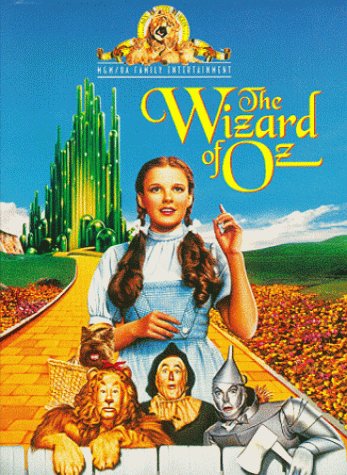
The "Over the Rainbow" is a ballad composed by Harold Arlen with lyrics by Yip Harburg. It was written for the movie The Wizard of Oz and was sung by actress Judy Garland in her starring role as Dorothy Gale. It won the Academy Award for Best Original Song and became Garland's signature song.
About five minutes into the film, Dorothy sings the song after failing to get Aunt Em, Uncle Henry, and the farm hands to listen to her story of an unpleasant incident involving her dog, Toto, and the town spinster, Miss Gulch (Margaret Hamilton). Aunt Em tells her to "find yourself a place where you won't get into any trouble". This prompts her to walk off by herself, musing to Toto, "Some place where there isn't any trouble. Do you suppose there is such a place, Toto? There must be. It's not a place you can get to by a boat, or a train. It's far, far away. Behind the moon, beyond the rain...", at which point she begins singing.
[video width="640" height="360" mp4="https://www.easypianoonline.com/wp-content/uploads/2019/03/OverTheRainbow.mp4"][/video]
Lyrics
Somewhere over the rainbow, way up high
There's a land that I've heard of once in a lullaby.
Somewhere over the rainbow, skies are blue
And the dreams that you dare to dream,
Really do come true.
Someday I'll wish upon a star
And wake up where the clouds are far behind me.
Where troubles melt like lemon drops,
Way above the chimney tops,
That's where you'll find me.
Somewhere over the rainbow, blue birds fly
Birds fly over the rainbow
Why then, oh why can't I?
Somewhere over the rainbow, blue birds fly
Birds fly over the rainbow
Why then, oh why can't I?
If happy little bluebirds fly beyond the rainbow
Why, oh why can't I?
Songwriters: E.Y. Harburg / Harold Arlen

[xyz-ihs snippet="NavigationLinksBlock-1"]
Somewhere In My Memory
by John Williams
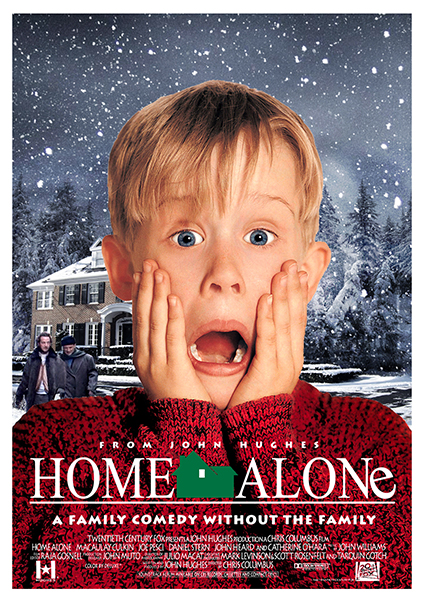
The "Somewhere in My Memory" was written to "run alongside" the film "Home Alone".
The score was composed by John Williams and nominated for the Academy Award for Best Original Score; the film's signature tune "Somewhere in My Memory" was nominated for the Academy Award for Best Original Song and the Grammy Award for Best Song Written for Visual Media.
It can be heard in numerous sections of the film, either in full length or fragments, forming the backbone for the film's soundtrack. "Somewhere in My Memory" is performed in many Christmas concerts in schools or professional orchestras and choirs alike across the globe. A version in Spanish was recorded in Spain for the ending credits of Home Alone 2: Lost in New York. This version was performed by singer Ana Belén and is entitled "Sombras de otros tiempos" ("Shadows of Other/Form Times").
[video width="640" height="360" mp4="https://www.easypianoonline.com/wp-content/uploads/2019/03/SomewhereInMyMemory.mp4"][/video]
Lyrics
Shadows painting the ceiling
Gazing at the fire glow
Feeling that gingerbread feeling
Precious moments, special people
Happy faces, I can see
Somewhere in my memory
Christmas joys all around me
Living in my memory
All of the music, all of the magic
All of the family, home here with me
Songwriters: John T. Williams / Leslie Bricusse
More tutorials for music by John Williams:


[xyz-ihs snippet="NavigationLinksBlock-Common"]
We Three Kings
by John Henry Hopkins

The "We Three Kings", also known as "We Three Kings of Orient Are" or "The Quest of the Magi", is a Christmas carol that was written by John Henry Hopkins Jr. in 1857. At the time of composing the carol, Hopkins served as the rector of Christ Episcopal Church in Williamsport, Pennsylvania, and he wrote the carol for a Christmas pageant in New York City. Many versions of this song have been composed and it remains a popular Christmas carol.
[video width="640" height="360" mp4="https://www.easypianoonline.com/wp-content/uploads/2018/12/we_three_kings.mp4"][/video]
Lyrics
We three kings of Orient are;
Bearing gifts we traverse afar,
Field and fountain, moor and mountain,
Following yonder star
Refrain:
O star of wonder, star of night,
Star with royal beauty bright,
Westward leading, still proceeding,
Guide us to thy perfect light.
Born a King on Bethlehem’s plain
Gold I bring to crown Him again,
King forever, ceasing never,
Over us all to reign.
Refrain
Frankincense to offer have I;
Incense owns a Deity nigh;
Prayer and praising, all men raising,
Worship Him God Most High.
Refrain
Myrrh is mine, its bitter perfume
Breathes a life of gathering gloom;
Sorrowing, sighing, bleeding, dying,
Sealed in the stone cold tomb.
Refrain
Glorious now behold Him arise;
King and God and sacrifice;
Alleluia!, Alleluia!,
Peals through the Earth and skies.
Refrain

[xyz-ihs snippet="NavigationLinksBlock-1"]
Silent Night
(Christmas carol)
by Franz Xaver Gruber
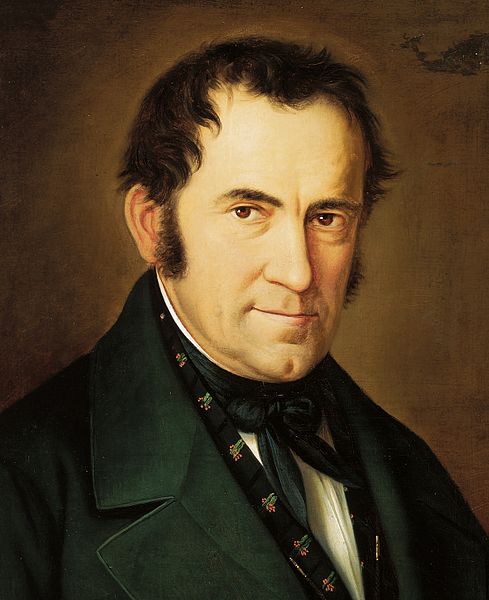
The "Silent Night" (German: "Stille Nacht, heilige Nacht") is a popular Christmas carol, composed in 1818 by Franz Xaver Gruber to lyrics by Joseph Mohr in the small town of Oberndorf bei Salzburg, Austria. It was declared an intangible cultural heritage by UNESCO in 2011. The song has been recorded by a large number of singers from every music genre. The version sung by Bing Crosby is the third best-selling single of all-time.
[video width="480" height="360" mp4="https://www.easypianoonline.com/wp-content/uploads/2018/12/silent_night.mp4"][/video]
Bing Crosby - Philco Playhouse - Silent Night - 1948
Lyrics
Silent night, holy night
All is calm, all is bright
'Round yon virgin Mother and Child
Holy infant so tender and mild
Sleep in heavenly peace
Sleep in heavenly peace
Silent night, holy night!
Shepherds quake at the sight!
Glories stream from heaven afar;
Heavenly hosts sing Al-le-lu-ia!
Christ the Savior is born!
Christ the Savior is born!
Christ the Savior is born!
Silent night, holy night
Son of God, oh, love's pure light
Radiant beams from Thy holy face
With the dawn of redeeming grace
Jesus, Lord at Thy birth
Jesus, Lord at Thy birth
Jesus, Lord at Thy birth
Lyrics: Joseph Mohr

[xyz-ihs snippet="NavigationLinksBlock-Common"]
Christmas Time is Here
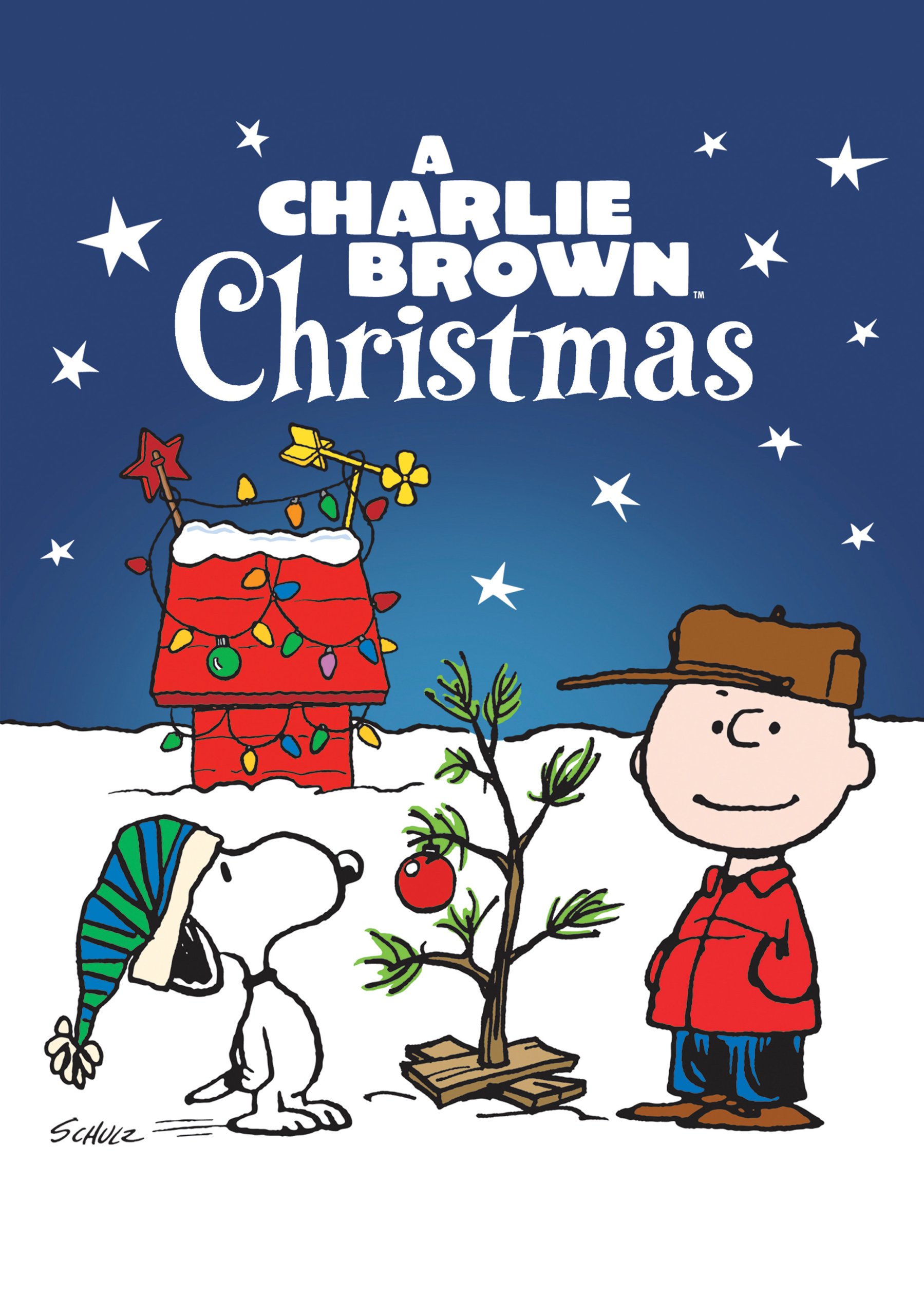
The "Christmas Time is Here" is the opening song from A Charlie Brown Christmas, written by Lee Mendelson and Vince Guaraldi.
Sung by the choir of St. Paul's Episcopal Church, it is heard as Charlie Brown and Linus join the rest of the Peanuts gang in ice skating on the frozen pond. Two versions of it appear on the special's soundtrack album - the vocal version as heard at the beginning of the special, and a six-minute instrumental version which appears as background music during the special. The instrumental version was later used, rearranged by David Benoit, in It's Christmastime Again, Charlie Brown and I Want a Dog for Christmas, Charlie Brown.
[video width="640" height="360" mp4="https://www.easypianoonline.com/wp-content/uploads/2018/12/ChristmasTimeIsHere.mp4"][/video]
Lyrics
Happiness and cheer
Fun for all that children call
Their favorite time of the year
Snowflakes in the air
Carols everywhere
Olden times and ancient rhymes
Of love and dreams to share
Sleigh bells in the air
Beauty everywhere
Yuletide by the fireside
And joyful memories there
Christmas time is here
We'll be drawing near
Oh, that we could always see
Such spirit through the year
Oh, that we could always see
Such spirit through the year
Songwriters: Lee Mendelson / Vince Guaraldi

[xyz-ihs snippet="NavigationLinksBlock-Common"]
All I Ask of You
by Andrew Lloyd Webber
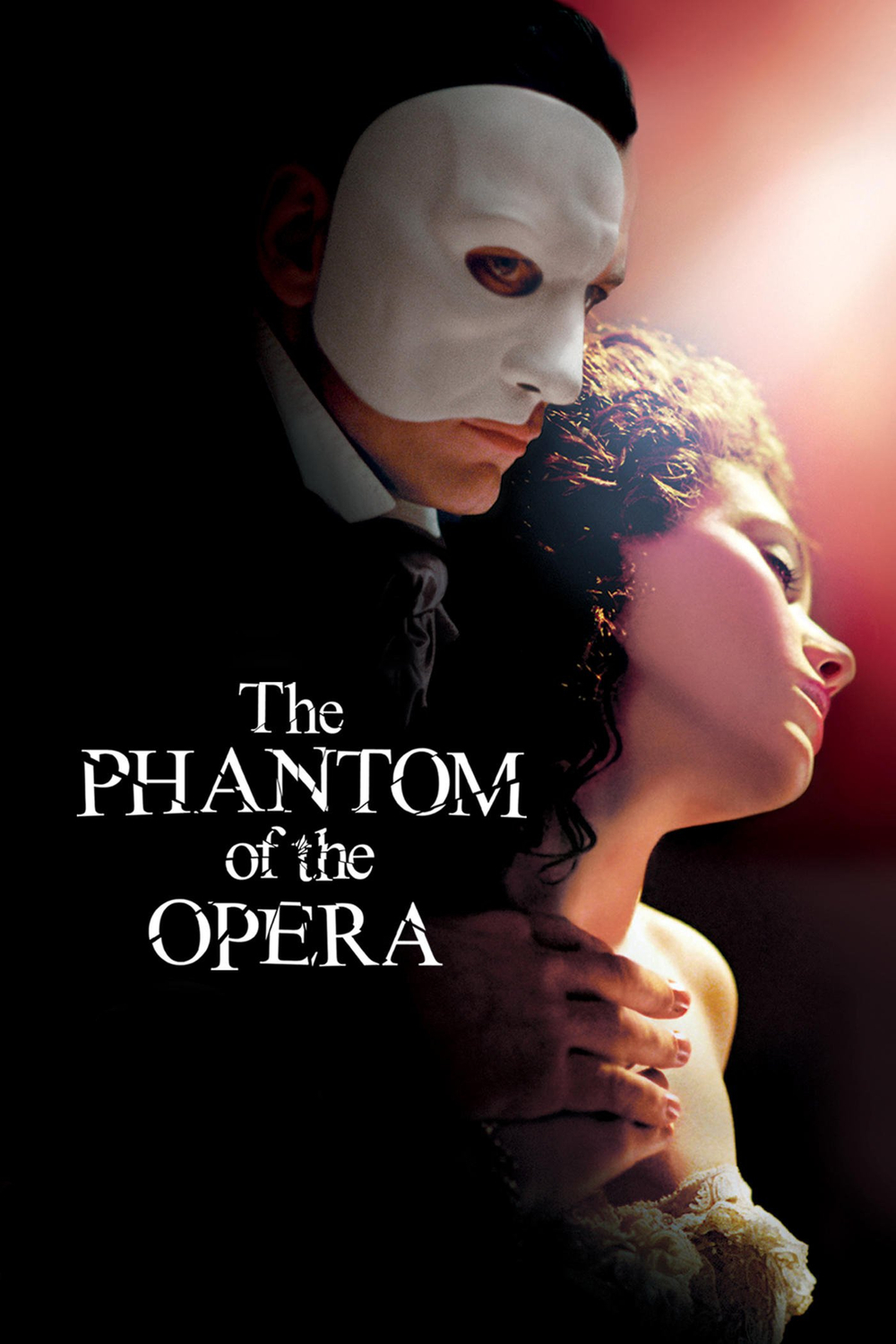
The "All I Ask of You by Andrew Lloyd Webber" is a song from the English musical The Phantom of the Opera, between characters Christine Daaé and Raoul, originally played on stage by Sarah Brightman and Steve Barton, respectively. It was written by Andrew Lloyd Webber, Charles Hart and Richard Stilgoe, and solely produced by Lloyd Webber. An operatic pop piece, its lyrics serve as dialogue between the two characters and discuss themes such as commitment and romance. Like Lloyd Webber's song "The Music of the Night", "All I Ask of You" was compared to the music found in Giacomo Puccini's 1910 opera La fanciulla del West.
[video width="640" height="360" mp4="https://www.easypianoonline.com/wp-content/uploads/2018/11/AllIAskofYou.mp4"][/video]
From the 2004 film version of The Phantom of the Opera.
Performed by Patrick Wilson as Raoul and Emmy Rossum as Christine.
Lyrics
No more talk of darkness,
Forget these wide-eyed fears;
I'm here, nothing can harm you,
My words will warm and calm you.
Let me be your freedom,
Let daylight dry your tears;
I'm here, with you, beside you,
To guard you and to guide you.
Say you love me every waking moment,
Turn my head with talk of summertime.
Say you need me with you now and always;
Promise me that all you say is true,
That's all I ask of you.
Let me be your shelter,
Let me be your light;
You're safe, no one will find you,
Your fears are far behind you.
All I want is freedom,
A world with no more night;
And you, always beside me,
To hold me and to hide me.
Then say you'll share with me one love, one lifetime;
Let me lead you from your solitude.
Say you need me with you, here beside you,
Anywhere you go, let me go too,
Christine, that's all I ask of you
Say you'll share with me one love, one lifetime;
Say the word and I will follow you.
Share each day with me,
Each night, each morning.
Say you love me!
RAOUL
You know I do.
Anywhere you go, let me go to
Love me, that's all I ask of you.
(they kiss)
I must go
They'll wonder where I am
Wait for me Raoul!
Christine I love you!
Order your fine horses!
Be with them at the door!
And soon you'll be beside me!
You'll guard me and you'll guide me
(they hurry off and the phantom emerges from behind the statue)
I gave you my music
Made your song take wing
And now how you've repaid me
Denied me and betrayed me
He was bound to love you when he heard you sing
Christine
Christine
Say you'll share with me one love,
One lifetime say the word and I will follow you
Share each day with me, each night, each morning
You will curse the day you did not do
All that the Phantom asked of you!
Go!
Songwriters: Charles Hart / Andrew Lloyd Webber / Richard Stilgoe

[xyz-ihs snippet="NavigationLinksBlock-Common"]
Edelweiss
by Rogers and Hammerstein
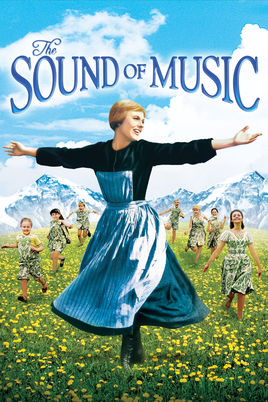
The "Edelweiss (German: lit. "noble white") by Rogers and Hammerstein" is a show tune from the 1959 Rodgers and Hammerstein musical The Sound of Music. It is named after the edelweiss, a white flower found high in the Alps (Leontopodium alpinum). It was created for the 1959 Broadway production of The Sound of Music in the role originated by performer Theodore Bikel as a song for the character of Captain Georg Ludwig von Trapp. In the musical, Captain von Trapp and his family sing this song during the concert near the end of Act II as a statement of Austrian patriotism in the face of the pressure put upon him to join the navy of Nazi Germany following the Anschluss. It is also Captain von Trapp's subliminal goodbye to his beloved homeland, using the flower as a symbol of his loyalty to Austria. In the 1965 film adaptation, the song is also sung by the Captain earlier in the film when he rediscovers music with his children.
[video width="640" height="360" mp4="https://www.easypianoonline.com/wp-content/uploads/2018/11/edelweiss.mp4"][/video]
Edelweiss (song from The Sound of Music)
Lyrics
Edelweiss Edelweiss
Every morning you greet me
Small and white
Clean and bright
You look happy to meet me
Blossom of snow may you bloom and grow
Bloom and grow forever
Edelweiss Edelweiss
Bless my homeland forever
Songwriters: Robin Spielberg / Richard Rodgers / Oscar Hammerstein


[xyz-ihs snippet="NavigationLinksBlock-Common"]
Prelude in C Major
by Johann Sebastian Bach
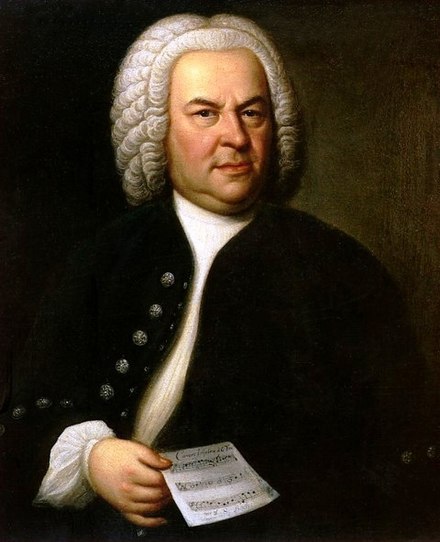
The "Prelude in C Major by J.S. Bach in C Major, BWV 846", is a keyboard composition written by Johann Sebastian Bach. It is the first prelude and fugue in the first book of The Well-Tempered Clavier, a series of 48 preludes and fugues by the composer. An early version of the prelude, BWV 846A, is found in the Klavierbüchlein für Wilhelm Friedemann Bach.
[video width="640" height="360" mp4="https://www.easypianoonline.com/wp-content/uploads/2020/12/Bach-Prelude-in-C-Major-Glen-Gould.mp4"]
Glenn Gould plays Bach Prelude in C Major
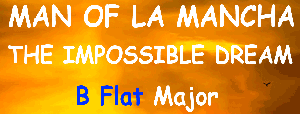
The Impossible Dream
(in B Flat Major)
by Leigh
"The Impossible Dream" is a popular song composed by Mitch Leigh, with lyrics written by Joe Darion. The song is the most popular song from the 1965 Broadway musical Man of La Mancha and is also featured in the 1972 film of the same name starring Peter O'Toole.
[caption id="attachment_2493" align="aligncenter" width="148"]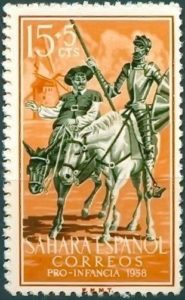 Man of La Mancha[/caption]
Man of La Mancha[/caption]
The complete song is first sung by Don Quixote as he stands vigil over his armor, in response to Aldonza (Dulcinea)'s question about what he means by "following the quest". It is reprised partially three more times – the last by prisoners in a dungeon as Miguel de Cervantes and his manservant mount the drawbridge-like prison staircase to face trial by the Spanish Inquisition.
It was awarded the Contemporary Classics Award from the Songwriter's Hall of Fame.
------------------ Lyrics --------------------
To dream the impossible dream
To fight the unbeatable foe
To bear with unbearable sorrow
To run where the brave dare not go
To right the unrightable wrong
To love pure and chaste from afar
To try when your arms are too weary
To reach the unreachable star
This is my quest, to follow that star
No matter how hopeless, no matter how far
To fight for the right
Without question or pause
To be willing to march
Into hell for a heavenly cause
And I know if I'll only be true
To this glorious quest
That my heart will lay peaceful and calm
When I'm laid to my rest
And the world will be better for this
That one man scorned and covered with scars
Still strove with his last ounce of courage
To fight the unbeatable foe
To reach the unreachable star
Songwriters: Joe Darion / Mitchell Leigh
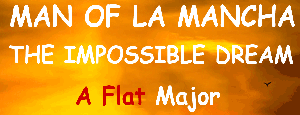
The Impossible Dream
(in B Flat Major)
by Leigh
"The Impossible Dream" is a popular song composed by Mitch Leigh, with lyrics written by Joe Darion. The song is the most popular song from the 1965 Broadway musical Man of La Mancha and is also featured in the 1972 film of the same name starring Peter O'Toole.
[caption id="attachment_2493" align="aligncenter" width="148"] Man of La Mancha[/caption]
Man of La Mancha[/caption]
The complete song is first sung by Don Quixote as he stands vigil over his armor, in response to Aldonza (Dulcinea)'s question about what he means by "following the quest". It is reprised partially three more times – the last by prisoners in a dungeon as Miguel de Cervantes and his manservant mount the drawbridge-like prison staircase to face trial by the Spanish Inquisition.
It was awarded the Contemporary Classics Award from the Songwriter's Hall of Fame.
------------------ Lyrics --------------------
To dream the impossible dream
To fight the unbeatable foe
To bear with unbearable sorrow
To run where the brave dare not go
To right the unrightable wrong
To love pure and chaste from afar
To try when your arms are too weary
To reach the unreachable star
This is my quest, to follow that star
No matter how hopeless, no matter how far
To fight for the right
Without question or pause
To be willing to march
Into hell for a heavenly cause
And I know if I'll only be true
To this glorious quest
That my heart will lay peaceful and calm
When I'm laid to my rest
And the world will be better for this
That one man scorned and covered with scars
Still strove with his last ounce of courage
To fight the unbeatable foe
To reach the unreachable star
Songwriters: Joe Darion / Mitchell Leigh

Still a Bach Christmas
(J.S. Bach arranged by Jay Althouse)
[caption id="attachment_2453" align="aligncenter" width="179"]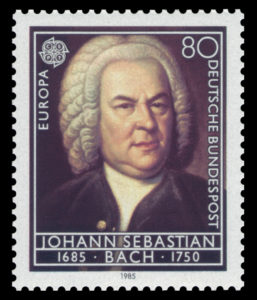 Johann Sebastian Bach[/caption]
Johann Sebastian Bach[/caption]
The "Still a Bach Christmas by J.S. Bach "

[xyz-ihs snippet="NavigationLinksBlock-Common"]
Happy Birthday to You
by Mildred and Patty Hill

The "Happy Birthday to You", also known as "Happy Birthday", is a song traditionally sung to celebrate the anniversary of a person's birth. According to the 1998 Guinness World Records, it is the most recognized song in the English language, followed by "For He's a Jolly Good Fellow". The song's base lyrics have been translated into at least 18 languages. The melody of "Happy Birthday to You" comes from the song "Good Morning to All", which has traditionally been attributed to American sisters Patty and Mildred J. Hill in 1893, although the claim that the sisters composed the tune is disputed.
[video width="640" height="360" mp4="https://www.easypianoonline.com/wp-content/uploads/2018/11/HappyBirthday.mp4"][/video]
Lyrics
Happy Birthday to You
Happy Birthday to You
Happy Birthday Dear (name)
Happy Birthday to You.
From good friends and true,
From old friends and new,
May good luck go with you,
And happiness too.
Alternative ending:
How old are you?
How old are you?
How old, How old
How old are you?

[xyz-ihs snippet="NavigationLinksBlock-Common"]
Memory
(from Cats)
by Andrew Lloyd Webber

The "Memory" is a show tune from the 1981 musical Cats It is sung by the character Grizabella, a one-time glamour cat who is now only a shell of her former self.
The song is a nostalgic remembrance of her glorious past and a declaration of her wish to start a new life. Sung briefly in the first act and in full near the end of the show, "Memory" is the climax of the musical, and by far its most popular and best-known song. Elaine Paige originated the role of Grizabella in the West End production of Cats, the first to perform the song publicly on stage and bringing attention to its writers Andrew Lloyd Webber and Trevor Nunn, who received the 1981 Ivor Novello award for Best Song Musically and Lyrically.
[video width="640" height="360" mp4="https://www.easypianoonline.com/wp-content/uploads/2018/11/memory.mp4"][/video]
Elaine Paige as Grizzibella
Lyrics
Has the moon lost her memory?
She is smiling alone
In the lamplight, the withered leaves collect at my feet
And the wind begins to moan
Memory, all alone in the moonlight
I can dream of the old days
I was beautiful then
I remember the time I knew what happiness was
Let the memory live again
Every streetlamp seems to beat
A fatalistic warning
Someone mutters and the street lamp gutters
And soon
It will be morning
Daylight
I must wait for the sunrise
I must think of a new life
And I mustn''t give in.
When the dawn comes
Tonight will be a memory too
And a new day will begin
Burnt out ends of smoky days
The stale cold smell of morning
A streetlamp dies; another night is over
Another day is dawning
Touch me!
It''s so easy to leave me
All alone with the memory
Of my days in the sun
If you touch me, you''ll understand what happiness is
Look, a new day has begun.
Songwriters: Andrew Lloyd Webber / Trevor Nunn / T.S. Eliot / Zdenek Hruby

[xyz-ihs snippet="NavigationLinksBlock-Common"]
Star Wars (Main Title)
by John Williams

The "Star Wars (Main Title)" is a 1977 instrumental hit single composed and conducted by John Williams. It is the main musical theme of Star Wars. It was performed by the London Symphony Orchestra. The track became a hit in the United States (#10) and Canada (#13) during the fall of that year. The composition draws influence from Erich Wolfgang Korngold's score for the 1942 film “Kings Row".
[video width="640" height="360" mp4="https://www.easypianoonline.com/wp-content/uploads/2018/11/StarWarsMainTitle.mp4"][/video]
Star Wars (main theme) - John Williams
BBC Concert Orchestra
Conductor Keith Lockhart
BBC Proms no.38 Film Music Prom 12/8/11
More tutorials for music by John Williams:








































